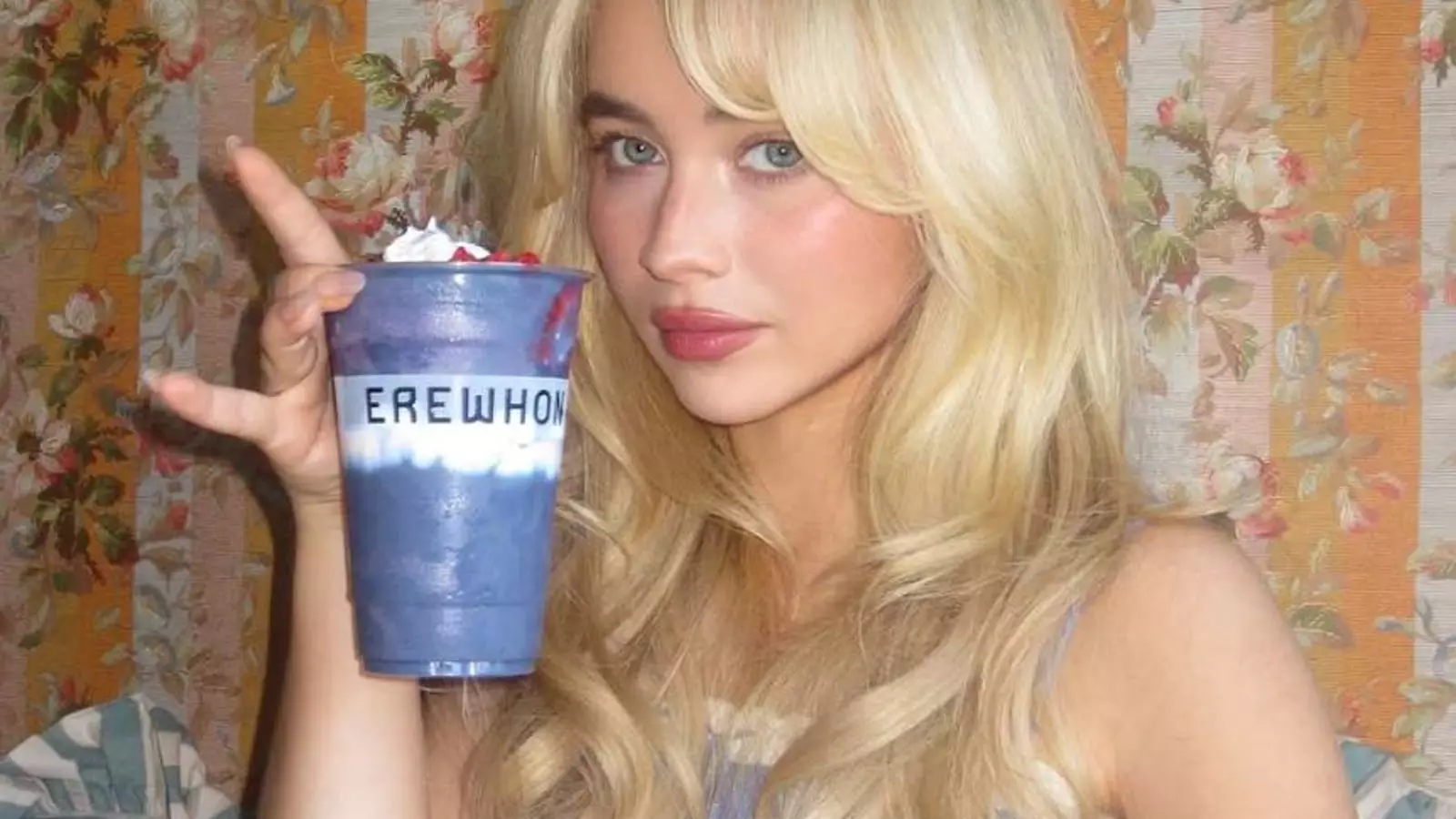In a society where health is equated with wealth, Erewhon epitomizes a paradigm shift in our perception of nutrition and well-being. Samuel Butler’s 1872 novel, *Erewhon*, introduced a world where illness was treated as a moral failure, and in today’s modern retelling, the grocery store that shares its name embodies this sentiment in a more insidious form. With its exorbitant prices—$22 for a smoothie, $19 for a single strawberry—Erewhon has transcended from being a mere grocery store to a lavish lifestyle brand, a symbol of exclusivity and a showcase of modern health fanaticism.
Visitors to Erewhon may find themselves caught in a labyrinth of choices—ranging from biodynamic to conventional and raw to pasteurized. In this carefully curated environment, every item on the shelf seems to carry a moral weight, forcing consumers to confront their dietary decisions as statements of virtue. The question becomes not merely what to eat, but how each choice positions the buyer within an ever-narrowing definition of wellness. At Erewhon, wellness is not merely an aspiration; it is a performance art, executed flawlessly at a high cost.
The Evolution of a Brand
Erewhon’s origins date back to 1966, founded by Michio and Aveline Kushi in Boston. Initially, the store served as a haven for those dedicated to organic living and countercultural values. Its ascent from a niche health food store to a high-end grocery destination represents a significant evolution, mirroring the transformation of the wellness industry itself. What began as a humble store dedicated to organic ideals has morphed into a sprawling boutique that thrives on exclusivity, diverting drastically from its original mission of promoting simple, unprocessed foods.
Having relocated to Los Angeles, Erewhon has adopted an aesthetic that aligns with luxury rather than asceticism. The meticulously designed stores evoke a sense of opulence rarely seen in grocery chains. This change reflects a broader societal trend where health is framed as a status symbol. It seems that for Erewhon’s clientele, spending upwards of $300 on groceries is not just acceptable; it is desirable. This phenomenon points to a fundamental shift in our understanding of health: that access to wellness has become a privilege reserved for those willing or able to participate in this expensive culture.
A Reality Check Amidst Cultural Cachet
The success of Erewhon is not merely due to its curated selection of products; it is deeply intertwined with its ability to conform to the modern consumer’s need for prestige and visibility. Much like the world of high fashion, Erewhon has capitalized on the allure of exclusivity. It has shifted from providing nourishment to selling an idea: that wellness can be achieved and showcased through consumerism. This ideology is not subtle. Those who opt for Erewhon’s upscale options are making clear statements about their lifestyles, investments, and, perhaps, their identities.
Moreover, the store’s ability to forge partnerships with celebrities adds yet another layer to its multifaceted brand identity. When high-profile figures like Hailey Bieber promote specific Erewhon products, it elevates the store from a grocery destination to a cultural phenomenon. It transforms a $20 smoothie into a tangible manifestation of aspirational self-care. The act of purchasing becomes a branded experience, compelling consumers to document their culinary choices for social media, further enhancing the store’s visibility and allure.
The Dogma of Dietary Choices
Yet within this glamorous façade lies a troubling implication: Erewhon perpetuates a dogmatic view of health that can border on elitism. The choices offered—raw dairy, grass-fed meats, or detox supplements—carry an undercurrent of judgment, suggesting that not adhering to these high standards is akin to moral failing. At its core, Erewhon embodies the notion that illness results from negligence or inefficacy in one’s choices—an unsettling parallel to Butler’s Erewhonians, who ostracized the ill.
This ideology constructs a binary framework where wellness is divine, but illness is a curse of one’s own making. Consequently, consumers are led to believe that their health is a direct result of their purchasing power; if they hustle hard enough to achieve the right lifestyle, wellness is assured. This creates a precarious reality where accessibility to health is skewed, and the narrative of self-improvement becomes a haunting reminder of societal inequities.
The Question of Authenticity in the Age of Wellness
Erewhon’s transformation into a beacon of wellness culture raises crucial questions about the authenticity of the wellness movement itself. It challenges consumers to think critically about the commercialization of health and whether genuine well-being can exist outside of a price tag. If wellness has become a performance, then what does it say about our society when the manifestation of health is intricately woven into visibility and wealth?
While it may be easy to chuckle at Erewhon as an extravagant joke, the reality is that it reflects a deeper societal issue—the commodification of health. Those who cannot afford it are often left behind, while the privileged few parade their purchases as trophies of a well-curated life. As we navigate this increasingly gated wellness landscape, it is vital to question the very foundations upon which this new health hierarchy is built. The sacred pursuit of true wellness must not become a mere reflection of status, but rather an inclusive journey that prioritizes health for all.


Leave a Reply